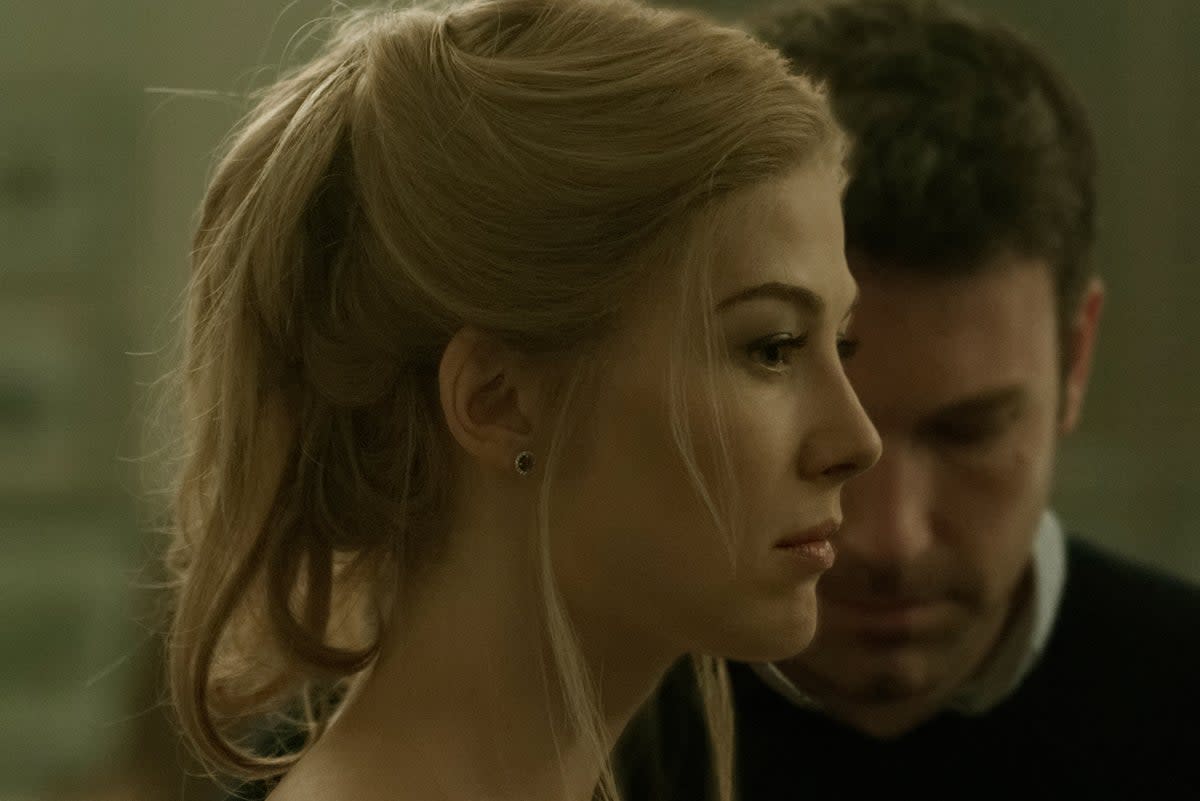Netflix’s American Nightmare makes you question if films like Gone Girl should be allowed

Haven’t you seen the movie Gone Girl?” These were the shocking words uttered by a Vallejo Police investigator in 2015, after accusing 29-year-old Denise Huskins of staging her own kidnapping and lying about a rape. To the eyes of the cop – and much of the media – the case bore a striking resemblance to David Fincher’s hit crime thriller, released the year before. In Gone Girl, Rosamund Pike plays Amy, a woman who frames her husband for her murder, running away before eventually returning home and claiming that she had been kidnapped and assaulted by a stranger. Huskins was telling the truth about her horrific ordeal, but it took months for the police to cotton on. As her lawyer later asked: “How could this person who’s charged with investigating crime think that this is like a Ben Affleck movie? That’s Hollywood. This is real life!”
The story of Huskins’s abduction and its unsavoury aftermath is explored in the new three-part docuseries American Nightmare, released last week on Netflix. It features archival footage and reenactments, as well as new interviews with Huskins and boyfriend – now husband – Aaron Quinn. (He was also attacked by the kidnapper, and was briefly suspected by police of having murdered Huskins, in another echo of Gone Girl.) Make no mistake: American Nightmare is first and foremost the story of inept policework and institutional sexism. It would be wrong to pin the malignant prejudices of the police department on a piece of pulp entertainment. But Fincher’s movie should not completely escape scrutiny.
Most people are, of course, intelligent and discerning enough to resist letting major legal decisions be swayed by a movie starring Tyler Perry. In a similar vein, Taxi Driver cannot be held responsible for John Hinckley’s attempted assassination of Ronald Reagan. Nor can Stanley Kubrick’s A Clockwork Orange be truly blamed for the spate of copycat crimes that accompanied its controversial release. But the sorry incident at the centre of American Nightmare is a reminder of the impact that movies can have – and the importance of giving them proper critical dissection. Often, with popular films, there is a notion that you are “overthinking it” if you try to apply analytical rigour. “It’s not that deep,” people will tell you. And yet, incidents like Huskins’s outline clearly how the media we consume informs our beliefs and preconceptions.
At its core, Gone Girl is a film about one woman’s web of deceit. Her husband Nick (Affleck) is a philanderer and general reprobate, but Pike’s character is a full-blown sociopath. In a vacuum, a character like this ought to pose no problems. Police officers have been wrongly and prejudicially dismissing legitimate claims of sexual assault since long before Gone Girl; it is more than possible that they would have disbelieved Huskins’s story anyway, even without the film’s template fresh in mind. What’s more, Gone Girl is not making the argument that Amy is in any way representative of her gender. She is presented as a kind of singular case study, a woman with an almost preternatural cunning and capacity for deception; the sheer unlikely audacity of her ruse is what makes this a story worth telling.
Nonetheless, the choice for such a film – one of the very few adult-oriented dramas in recent years to break through and become a mainstream hit – to spotlight a false rape accusation was, for many critics, a regrettable one. Statistics have shown that only a small percentage of sexual assault allegations are false; that Gone Girl should opt to platform one of these anomalies led to it being branded a “recycling of rape myths” by The Guardian’s Joan Smith. Huskins’s ordeal drew a straight line from fiction to reality; even if the film wasn’t responsible for the police department’s preconceptions, it clearly helped articulate some woolly sexist belief in their mind – giving it a name and a precedent.
Does this mean that the film should never have been made? No. Nor should it have been obliged to contextualise its story with the broader landscape of male violence against women, the relative obscurity of fabricated allegations. Art should be able to say what it wants, however it wants, and be judged on its own merits. But if it had made this clearer, or if it had told a different story entirely, perhaps it would not have been used as a cudgel against a woman who was in desperate need of help.
‘American Nightmare’ is streaming on Netflix now


